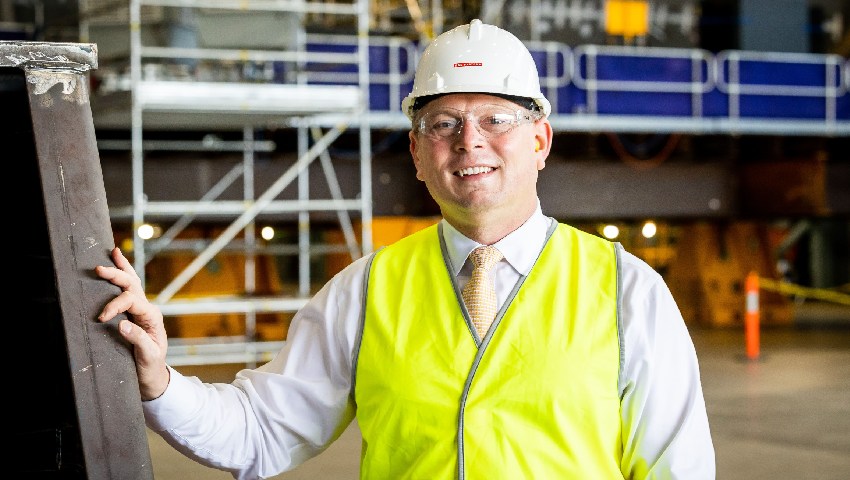Opinion: There has never been a greater need for an increase of science, technology, engineering, and maths (STEM) skilled students to be graduating from our universities to feed the knowledge-based economy we have here in Australia, writes the CEO of BAE Systems Australia, Ben Hudson.
Yet the pool of STEM talent is shrinking, not just here but globally.
At the same time, Australia is looking to grow and prosper in the wake of a global pandemic.
Industry is striving to be more resilient and more productive, and as a nation, we are looking for solutions for real-world problems like climate change.
I believe that when it comes to solving future challenges, STEM-skilled students are an important part of the answer and industry must play a role in supporting the pipeline of talent that we all need.
Australia has well and truly punched above its weight when it comes to our ability to invent or innovate, developing many world-leading technologies. Think Wi-Fi, plastic skin, the black box flight recorder and many more. All created here.
Study in the STEM fields by innovative Australians helps develop critical and analytical thinking. Today’s STEM students are our future engineers and scientists; they are our future innovators, they are drivers of our economy, jobs and the prosperity of our nation.
My own company is heavily reliant on a STEM-educated workforce. Two-thirds of the 5,500 people working at BAE Systems across Australia have STEM skills.
Over seven decades of supporting the Australian Defence Force, these people have been at the core of the development of world-leading technologies that help support the men and women of the ADF who keep us all safe.
Our STEM-skilled workforce is also critical to our future success where:
- at Osborne, we’re building nine of the most technologically advanced warships for the Australian Navy; and
- at Edinburgh Parks, we make parts and equipment for every F-35 Joint Strike Fighter aircraft in the world, and which is where much of the technology to upgrade the Jindalee Operational Radar Network (JORN) is being developed.
I believe that if increasing the pool of STEM talent, will benefit Australian industry, then industry must be part of the solution.
My company, BAE Systems Australia, this week started a three-year partnership with local edu-tech company Lumination, so that together, we might make a difference and inspire more students to stick with STEM during their schooling.
The program, Beacon, has been launched in South Australia, NSW and Western Australia and will grow into a national program during the next three years.
Beacon aims to inspire Years 4-6 students using immersive technology. Even at this age, many parents can vouch for how tech-savvy and highly connected our children are today and this is why it is important to inspire and engage them early. My own six-year-old son will attend a coding camp in the mid-year holidays this year and it has been fantastic to see his growing curiosity for STEM and think about what his future may hold.
Immersive technologies allow students to explore and investigate real-world problems aligned to the curriculum and not only makes it fun to learn but also easier to collaborate and develop solutions together.
I am especially pleased that Beacon will target schools in lower socio-economic areas because it’s important that technology is used to level the playing field for students.
In this way everyone can aspire to have a highly skilled and long-lasting career, regardless of where they live.
Success for me in this partnership lies with inspiring and motivating more students to study STEM and move into STEM professions that will set them up for long lasting, interesting, well-paid work and ensure we have a prosperous nation for generations to come.
If we get this right, and grow the STEM talent pool, industry will undoubtedly benefit, and the effects will flow on to all Australians.
Ben Hudson is the CEO of BAE Systems Australia.


